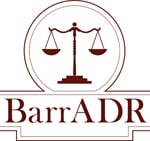“Seek first to understand…then to be understood” — Stephen Covey
Often, when prior attorney-driven negotiations have stalled, a fresh look and opinion from an expert neutral can jump-start settlement discussions. That is frequently why attorneys engage in mediation. Other times, mediation is court ordered.
Mediation is similar to negotiation, but conducted by a neutral, who generally acts as a facilitator and refrains from offering evaluations of the merits. Mediation is a voluntary method of ADR that allows parties to craft their own solution to a dispute. Mediators cannot impose decisions on disputing parties; rather, they encourage disputing parties to find common ground and resolve their dispute on their own terms.
Colorado statutes distinguish between a “mediation” and a “settlement conference” (similar, but the neutral is empowered by statute to offer evaluation on the merits). C.R.S. §13-22-302 (2.4) and (7). Because she sometimes offers evaluations but sometimes doesn’t, Judge Barr uses the two terms interchangeably.
There has been a long-standing academic debate about settlement style–is transformative mediation “better” than evaluative? Is “facilitative” mediation the only “real” mediation? Judge Barr believes the “best” method is to use all the arrows in the quiver. She commits to engage in unbiased, thoughtful, principled and creative problem-solving techniques that develop trust in the process and promote settlement.

